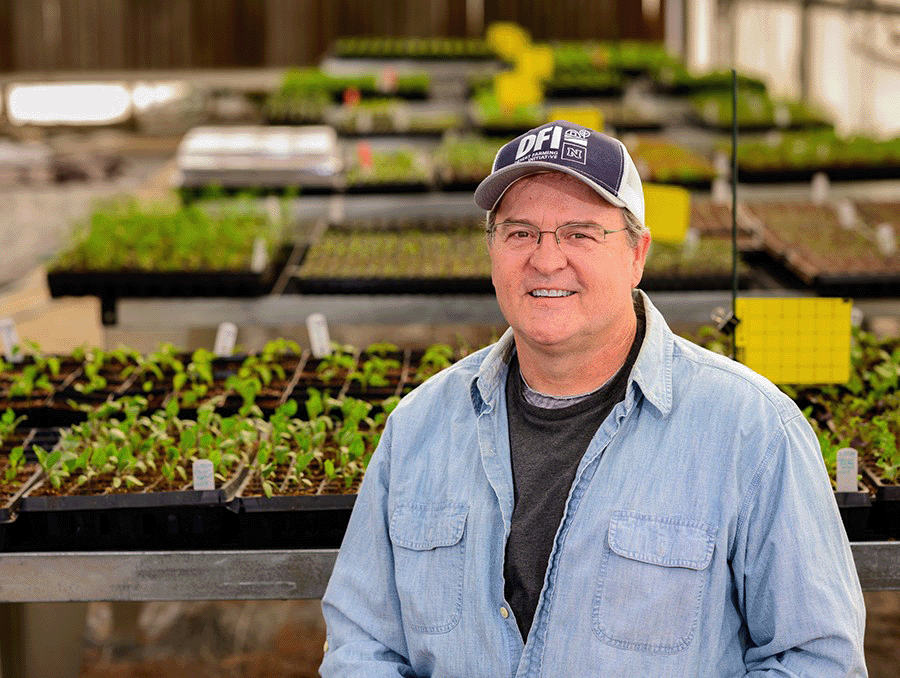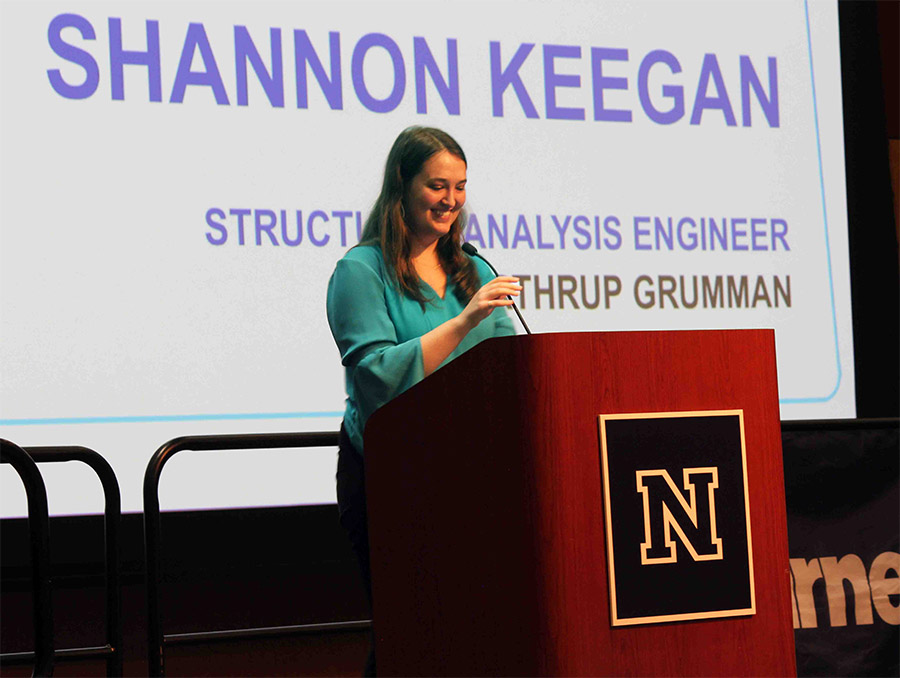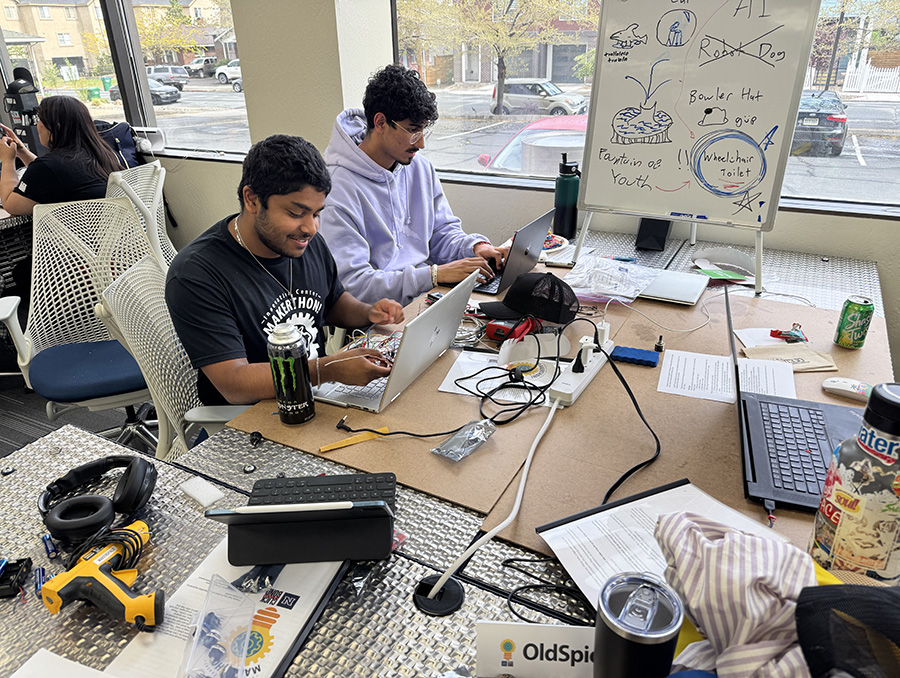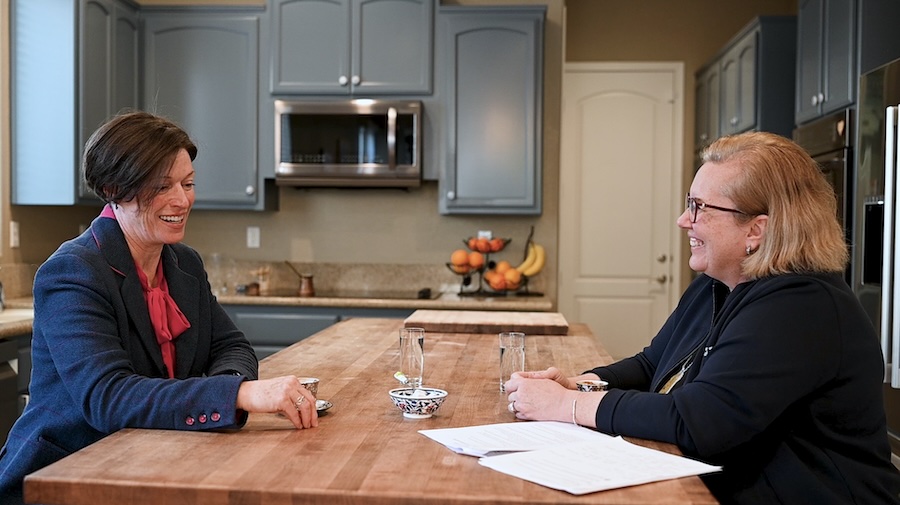As spring’s warm temperatures will soon be turning into summer’s heat, the University of Nevada, Reno, in collaboration with the Nevada Farm Network and other partners, is reaching out to help agricultural producers prepare for handling summer’s heat on their farms with a virtual forum on April 28. They are also offering assistance to farms and ranches aspiring to produce certified organic fruit and vegetables, hay and livestock.
Forum on managing farms in Nevada’s heat
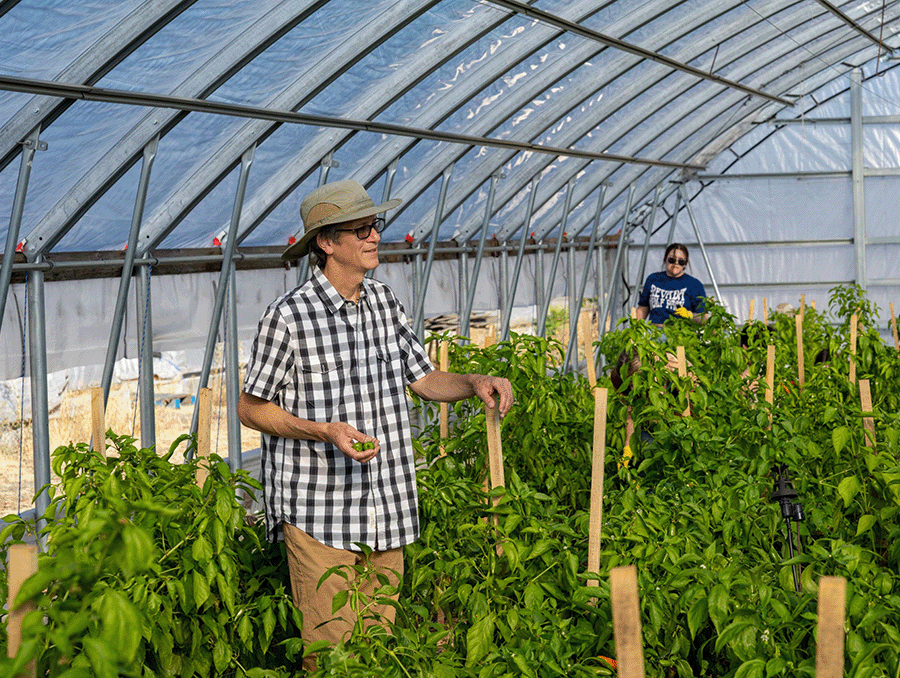
The Fourth Annual Forum on Farm Resilience, this year focusing on heat management, will be held via Zoom, 10 a.m. – noon, April 28. The Forum is hosted by the Nevada Farm Network, and supported by the University’s Desert Farming Initiative, Reno Food Systems and the Local Food Network in Reno. Farmers and ranchers are encouraged to attend to hear from the Nevada State Climate Office about the season outlook, and from University of Nevada, Reno, specialists discussing heat-tolerant crops and production practices for managing heat.
Tom Albright, deputy Nevada state climatologist and associate professor in the University’s Department of Geography in the College of Science, will give a season outlook for farms, focusing on temperature forecasts. Several faculty members from the University’s College of Agriculture, Biotechnology & Natural Resources will be on hand, including:
- Felipe Barrios Masias, associate professor in the Department of Agriculture, Veterinary & Rangeland Sciences, will talk about heat-related challenges for farms and some of the research he conducts as part of the University’s Experiment Station.
- Misha Allen, Extension educator in Nye County, will discuss agrivoltaics for heat management. Agrivoltaics is a practice using farmland for both growing crops or raising livestock and generating solar electricity.
- Jill Moe, director of the Experiment Station’s Desert Farming Initiative, will talk about farm resilience strategies including on-the-ground practices in place at their training farm.
After short presentations, there will be an emphasis on discussion and questions from participants. The virtual workshop is free, but those attending need to register online in order to be provided with the Zoom link. For more information on the Forum, contact Moe at 775-682-9783.
Growers going organic
As consumers are increasingly seeking organic produce, the Desert Farming Initiative launched the Grow Organic Nevada Program about a year ago to help guide Nevada producers through the process to become certified organic producers. The program enlists the help of experienced organic producers to mentor other farmers and ranchers.
“You get a plan written and use it. It’s not as hard as people think it is,” said Rob Holley, who owns and operates his own certified organic farm in Dayton and coordinates the program for the Desert Farming Initiative. “It requires recordkeeping, but it’s just an extension of what most farmers or ranchers are already doing. They are further along than they think. There’s a lot of resources out there, and the mentors can help streamline that process and provide practical tips for those who are interested.”
Holley’s family has been farming in Dayton for more than 50 years. When Holley decided to seek organic certification for Holley Family Farms in 2011, he said he worked very closely with a couple of other producers and the Nevada Department of Agriculture who helped them through the process. He says it’s been worth it.
“Since becoming organic in 2011, we’ve seen a continued increase in sales and demand for our product,” he said.
To provide support to producers while they take the plunge into organics, the Grow Organic Nevada Program is providing $500 to producers seeking to become certified. Those seeking a mentor can request a mentor online. To compensate producers who are serving as organic mentors, the program provides $3,000 for 40 hours of service. Mentors provide one-on-one guidance, share their organic farming expertise, and participate in organic-focused community events. Producers interested in mentoring, also apply to become a mentor online.
One of the current mentors is Marcia Litsinger, who with her husband Steve, owns Churchill Butte Organics. They have been organic producers since the 1990s and were one of the first under the state organic certification program to get certified in 2002. The Litsingers mentored Holley through the process of getting his family’s operations certified organic.
“Marcia and Steve mentored me and Holley Family Farms in 2010,” he said. “She walked us through the certification process and gave us business advice, growing advice and life advice. We are really excited to have her share her knowledge and experience with others.”
enjoys working with other farmers and sees the program as serving an even higher purpose.
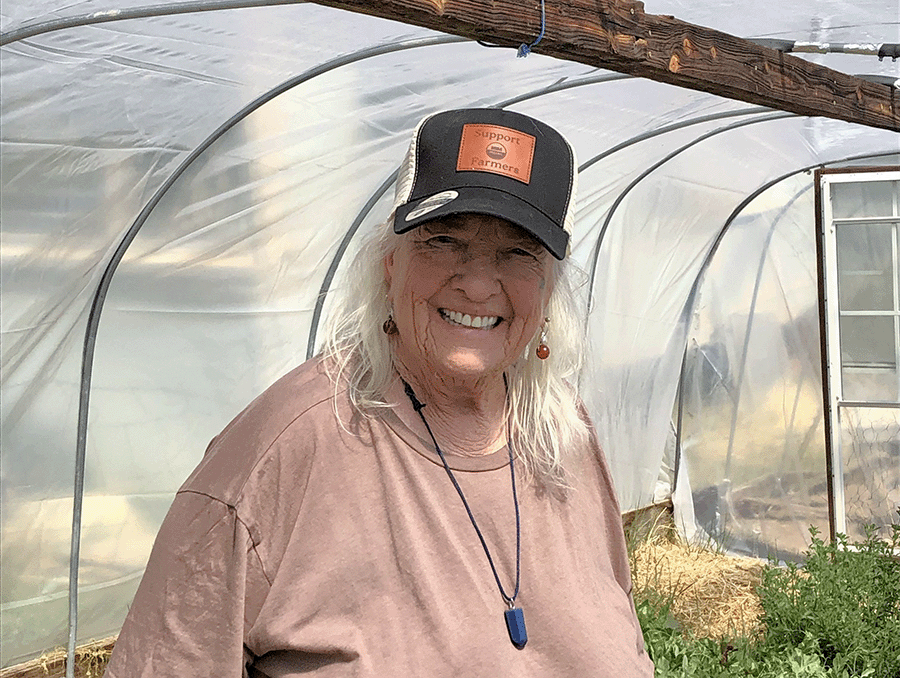
"I'm excited to work with more farmers who are interested in growing good clean food and keeping the earth clean," she said.
Currently, she is mentoring Lily Grey with Growth n’ Greens, a microgreens farm, and Geoff Souza with a new vegetable farm Palomino Valley Farm.
“It has been a blessing to be introduced to a strong community of farmers who are all looking to help each other out in our goals to become organic certified and produce the healthiest food possible,” Souza said. “We want to give a huge thank you to Rob, Marcia and everyone at the Desert Farming Initiative who makes this program work."
Holley says that a lot of growers are just stepping up to help one another in a variety of ways through the program.
“A big part of the program is to offer technical assistance to address farming challenges, whatever they are,” he said. “We’re working to provide support to Tribal communities. At the Duck Valley reservation, we’re contributing to a workshop on composting, pest control and soil health. They’re going to record it, and it will be made available to other communities. We’ve also helped connect the people who manage the Elko’s Farmers Market and those who manage the Farmers Market in Duck Valley, to facilitate collaboration between the two groups.”
Holley noted that funding for the program is being provided through a significant grant from the U.S. Department of Agriculture (USDA) Transition to Organic Partnership Program, a network assembled by the USDA’s National Organic Program to support transitioning and organic producers with mentorship and resources. There are six designated regions for the program, and Nevada falls under the West/Southwest Region, which is led by the nonprofit California Certified Organic Farmers. The nonprofit organization has contracted the University to run the program in Nevada. As with many agricultural programs, the program is contingent upon continued federal funding. For more information on the Grow Organic Nevada Program, contact Holley at 775-784-6556.
